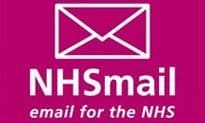Plans to end central funding of email-to-SMS services for NHSmail2 will “go down like a lead balloon” with GPs, a primary care leader has warned.
The proposal to move the cost of the service onto local providers is outlined in a full business case prepared by NHS England and the Department of Health for the transition from the current NHSmail service to its replacement.
The document says that responsibility for providing SMS services will “cease to be a central concern” from 31 March, 2015. “After this health and care organisations must procure and fund their own service.”
It says the preferred model for the provision of SMS services, the G-Cloud framework, will create a market of competing suppliers for local NHS organisations.
Dr Paul Cundy, who is joint chairman of the British Medical Association and Royal College if GPs’ joint IT committee, told EHI the plans “will go down like a lead balloon” with GPs.
“This will probably be the blue touch paper: GPs have had so much dumped on them, and the idea that they have to pay, that could be the final straw.”
A DH spokesperson told EHI that although “everyone agrees” that text messaging is useful and should continue to be used, "this technology is no longer new and it’s right that organisations are responsible for its use and funding at a more local level."
A June letter from the Health and Social Care Information Centre to affected organisations says the change reflects the move away from nationally procured systems, and states that “it is right that local organisations are given the flexibility to choose systems that best suit local clinical and patient needs."
The letter says organisations should consider how they use SMS services, given the widespread use of smartphone apps and email, “both of which are cheaper means of communication."
“It is therefore an appropriate time for local organisations to decide how best to make use of all the available methods of communication bearing in mind the costs, risks and benefits of each.”
The DH spokesperson said that NHS England and the HSCIC is going to look at how primary care organisations can be supported “to manage the change and what financial support may be available" and that NHS England will provide a further update direct to primary care organisations "as soon as possible.”
Dr Cundy told EHI that the SMS service is very important to GPs, with many of those who are not already using it making plans to adopt it in the next year.
He said the removal of central funding for SMS services appears to contradict health secretary Jeremy Hunt’s promotion of greater use of technology within the NHS.
“If Jeremy Hunt wants a paperless NHS by 2018, and he wants us to use modern technologies for access… it seems a bit unfortunate that at the same time we’re taking on these services, the DH is cutting into the funding.”
Cundy said the GP Committee had successfully managed to “bump back” the end of the service from April 2014 to 2015, and is currently in discussions about how SMS services will be provided for GPs. He believes there is a possibility that the DH will fund a separate SMS service for GPs, due to its importance to practices.
A managed email framework tender worth £120m – £350m for the procurement of NHSmail2 was released in February this year. The DH expects a new supplier to be selected from the managed email framework this autumn, which will be available for all public sector bodies to use.

